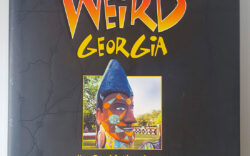Good news is needed here on Planet Earth today, and the Webb Space Telescope is providing some much appreciated good news from its lofty perch a million miles from our tiny world.
Last month scientists released some of the first images taken by the instrument, and they were stunning to astronomers and to the general public. The telescope was rocketed into space last Christmas Day, and in my first Street Scribe column of this year, published on Jan. 19, I called the new instrument a dream come true for scientists who have been peering at the cosmos with telescopes since the Italian astronomer Galileo first viewed the moon and planets through his small and primitive telescope more than 400 years ago.
News of the Webb telescope’s success traveled quickly around our planet, providing some relief from the wars, plagues, wildfires and political skullduggery here on Earth. Newspapers, magazines and online websites trumpeted the first glimpses of the heavens provided by the instrument. The New York Times, founded in 1851, brought the Space Age to the front page of its July 13 edition with a color Webb image of a faraway nebula and a story headlined “A Stunning New Peek Into the Ancient Cosmos.” The venerable Scientific American magazine began publication in 1845. Its website praised the Webb Space Telescope for revealing “new views of the cosmos in exquisite, never-before-seen detail.”
Generations of professional and amateur astronomers have read Sky & Telescope magazine since it began publishing in 1941. After Webb’s first images were shown to a waiting world, the magazine’s website crowed that the instrument “is pushing back the frontiers of astronomy by looking further and fainter in time and space than ever before.” Astronomy Magazine, founded in 1973, agreed, calling Webb “the most sophisticated and ambitious space telescope ever built.” The magazine was right. The Hubble Space Telescope, placed in orbit more than 30 years ago, provided unprecedented views of the heavens, but the new Webb telescope promises to eclipse the work of the Hubble instrument.
The science of astronomy provides a much-needed sense of awe and wonder that is a balm in these times of anti-scientific ignorance and political rancor. Physicist Albert Einstein was correct when he said, “The most beautiful emotion we can experience is the mystical.” While the Webb telescope provides new wonders for humans today, 45 years ago science showed other stunning heavenly wonders after the twin Voyager spacecraft were launched from Cape Canaveral in the late summer of 1977. The two Voyager craft flew past the “gas giant” outer planets of Jupiter, Saturn, Uranus and Neptune on a 12-year “grand tour” of those strange and distant worlds. Snapping photos like tourists on a hurried holiday, the robotic Voyagers surveyed their planetary destinations, then headed out of the solar system and forever down the corridors of the cosmos toward the darkness of interstellar space.
In the unlikely event that the aptly-named Voyagers are found by spacefaring beings from other worlds, on board each of the spacecraft are gold-plated records called “Sounds of Earth.” The records contain such sounds of our home world, including music ranging from Beethoven to Chuck Berry, the calls of many animals, the bleat of a traffic jam and the sweet, soft sound of two lovers sharing a kiss. The Voyager spacecraft are Earth’s electronic emissaries to eternity, and their “Sounds of Earth” records are messages in a bottle tossed into the sea of space. Perhaps in some faraway time billions of years hence, when the sun is dead and life on Earth is gone, alien intelligences will find the little spacecraft and hear the most poignant sound on the Voyager records, the voice of a child saying, “Hello from the children of Planet Earth.”
The Webb Space Telescope and the Voyager spacecraft can rekindle a sense of awe in people today by showing us the wonders of Mother Nature and Father Time. Such scientific achievements show that the words of writer Eden Phillpots are eternally true: “The universe is filled with magical things patiently waiting for our wits to grow sharper.”
Like what you just read? Support Flagpole by making a donation today. Every dollar you give helps fund our ongoing mission to provide Athens with quality, independent journalism.










